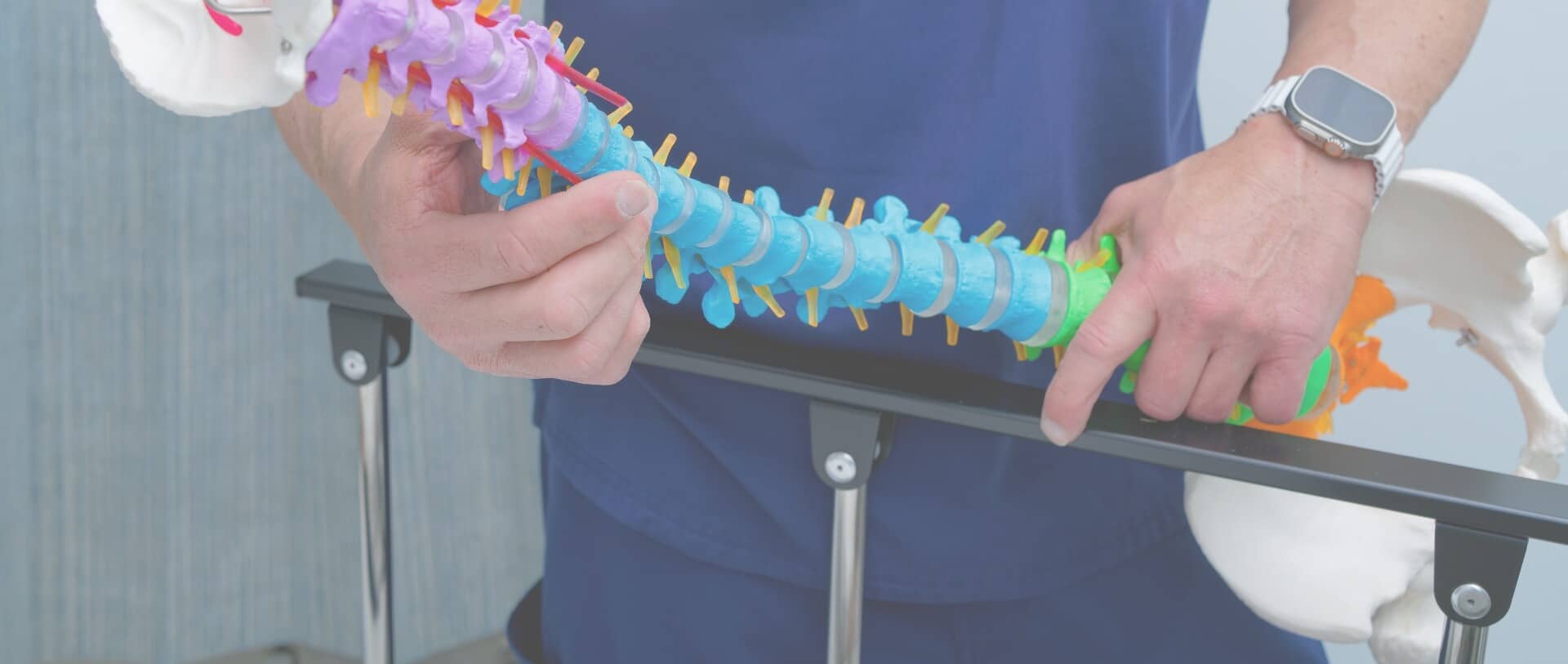
CONDITIONS
Arthritis in the Neck
Constant wear and tear on the bones in your neck can increase the risk of developing arthritis in the neck. Although commonly seen in elderly Americans due to years of strain on their neck muscles and bone structure, anyone can experience the wearing out of cushions that prevent neck bones from rubbing against each other. Recognizing early warning signs can facilitate early intervention and pain relief. For the best neck arthritis treatment, schedule a consultation with Gottlieb Spine, the top spine center in Texas.
What is Arthritis?
Arthritis is a condition that affects millions of people worldwide. It’s a term to describe inflammation of joints, which can cause pain, stiffness, and difficulty moving. Neck arthritis, specifically, affects the bones, joints, and discs in the cervical spine. It tends to develop gradually over time due to the wear and tear of these structures and is more prevalent in older adults.
Did you know that the facet joints in your neck can be affected by arthritis? These joints are located between the vertebrae and are responsible for providing stability and flexibility to the neck. This allows us to turn our heads and look in different directions. Facet joint arthritis and neck arthritis are often the cause of neck pain in older adults.
What Causes Neck Arthritis?
Neck arthritis is primarily caused by the natural degeneration of the cervical spine over time. Despite exercising and maintaining a nutritious diet, vertebral discs may lose water content and height, resulting in weakened discs. Weakened discs can lead to closer proximity of facet joints in the neck, which are responsible for allowing free movement and rotation of the head and neck. When cartilage breaks down in these facet joints, stiffness and limited range of motion in the neck may be experienced.
In some cases, cartilage can wear off completely, resulting in bone-on-bone contact. This may cause the growth of new bone, known as bone spurs, within the facet joints. The development of bone spurs can restrict the space through which nerve roots pass, leading to a potentially painful condition.
What are the Signs and Symptoms of Neck Arthritis?
Symptoms of neck arthritis may not be immediately apparent. However, as the condition progresses, you may experience stiffness, varying degrees of pain, and other related symptoms, including:
- Popping or grinding sounds when you turn your head
- Headaches
- Muscle spams in the neck and shoulders
- Numbness or weakness in the arms or hands
Symptoms may worsen following prolonged periods of looking up or down or holding your neck in the same position. For example, you may exacerbate the pain while reading a book or using your cell phone.
How is Neck Arthritis Diagnosed and Treated?
To diagnose neck arthritis, Dr. Gottlieb will evaluate your reflexes, muscle strength, and neck mobility. Diagnostic tests like X-rays, MRIs, or CT scans may be necessary. He may also require nerve function tests to assess muscle-to-nerve signaling.
The primary goals of arthritis treatment are to relieve pain, prevent permanent nerve damage, and maintain your usual activities. Dr. Gottlieb may recommend:
- Over-the-counter non-steroidal anti-inflammatory drugs (NSAIDs) such as ibuprofen and naproxen
- Utilizing cold and hot therapies
- Muscle relaxants
- Steroid-based injections
- For severe and unresponsive pain, or when compression on the spinal cord or nerves occurs, surgery may be
necessary
Will My Neck Arthritis Require Surgery?
In many cases, neck arthritis can be managed without surgical intervention. Whether or not your condition warrants spine surgery will depend on several factors. Together with your doctor, you will consider:
- Severity of symptoms: Mild to moderate symptoms of neck arthritis, like occasional pain, stiffness, and reduced range of motion, can often be managed through conservative treatment and may not justify surgical intervention.
- Response to conservative treatment: If conservative treatment for arthritis in the neck has provided significant relief, surgery may not be necessary.
- Impact on quality of life: If neck arthritis is causing severe pain, disability, or neurological deficits, surgery might be considered to address the underlying issues and provide long-term relief.
- Advanced joint damage: If imaging tests show advanced degeneration, bone spurs, or nerve compression, surgery may be needed to alleviate pressure and stabilize the spine.
- Neurological deficits: If your arthritis is causing weakness, numbness, or tingling in the arms or hands, surgical intervention may be considered to prevent further neurological damage.
If Dr. Gottlieb does recommend surgery for your neck arthritis, he will choose a procedure that focuses on maintaining stability in the neck and relieving any pressure on the spinal cord, such as:
- Anterior cervical discectomy and fusion (ACDF): In this two-step procedure, Dr. Gottlieb will remove a damaged disc. Then, he will fuse the adjacent vertebrae to stabilize the spine.
- Cervical disc replacement: An alternative to fusion, this procedure involves replacing a damaged disc with an artificial one to maintain natural neck mobility.
- Foraminotomy: Involves enlarging the cervical foramina, which are the bony tunnels through which nerves exit the spinal column, to relieve any compression.
- Cervical laminectomy: A portion of the vertebrae’s bony arch, or the lamina, is removed to relieve pressure on the spinal cord.
- Spinal fusion: Dr. Gottlieb will fuse two or more vertebrae to increase stability and reduce movement at the affected segment of the spine.

Top Quality Care at Gottlieb Spine
Constant wear and tear on the bones in your neck can increase the risk of developing arthritis in the neck. Recognizing early warning signs can facilitate early intervention and pain relief. For the best neck arthritis treatment, schedule a consultation with Dr. Gottlieb, the top spine center in Texas. Choose Gottlieb Spine for tailored neck arthritis care aimed at relieving pain and helping you reach optimal health.
SCHEDULE A CONSULTATION